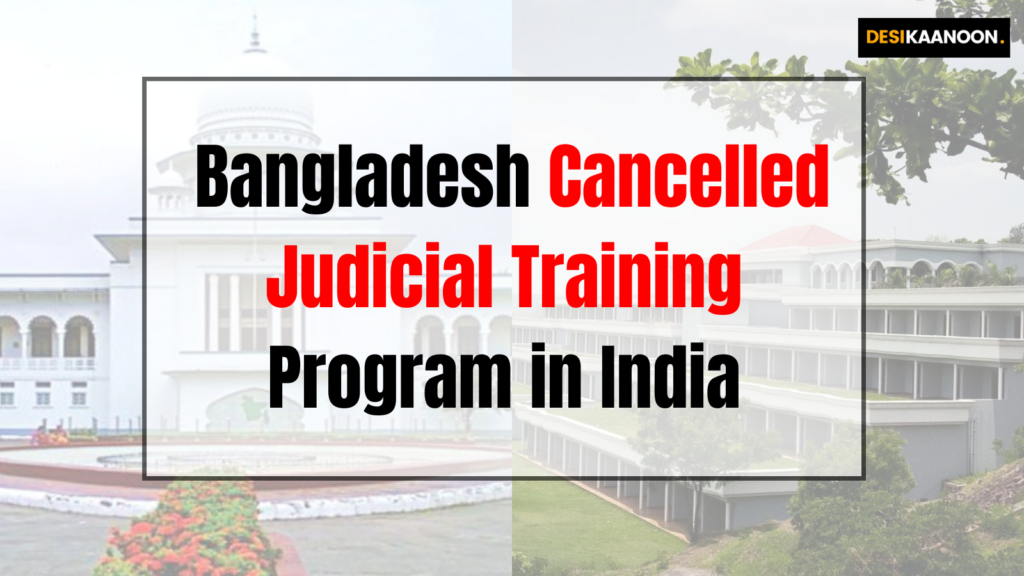Alok Singh
Bangladesh’s interim government has abruptly cancelled a judicial training program for 50 judges and officers from Bangladesh, scheduled for 10 February at India’s National Judicial Academy in Madhya Pradesh. This step highlighted the rising diplomatic strains between both countries.
The training, fully funded by India, was intended for district and session judges, additional district judges, and equivalent officers.
Initially, it was announced by Bangladesh Sangbad Sangstha, but later, the law ministry cancelled the program without an official explanation. Reports suggest that directives from the Bangladesh Supreme Court played a role and influenced the decision.
Political tensions in Bangladesh have escalated since the ousting of former Prime Minister Sheikh Hasina in August following violent protests.
The interim government, led by Muhammad Yunus, faces criticism over rising violence and attacks on Hindu places of worship, prompting India to seek assurances regarding the safety of minorities in Bangladesh.
The recent arrest of Hindu monk Chinmoy Krishna Das, a former ISKCON leader, on sedition charges further strained relations. Das was accused of desecrating the national flag, a charge vehemently denied by his defence. His arrest triggered protests and clashes, resulting in a lawyer’s death during proceedings overseen by Judge Mohammad Saiful Islam.
This incident has raised concerns over judicial fairness and minority rights in Bangladesh, prompting India to call for a transparent judicial process.
Despite these tensions, India remains committed to supporting a stable and inclusive Bangladesh. Randhir Jaiswal, spokesperson for the Ministry of External Affairs, reaffirmed this in a recent press conference, emphasizing that mutual trust and respect guide India’s diplomatic approach.
He highlighted India’s focus on fostering trade, improving connectivity, and enhancing institutional cooperation with Bangladesh.

